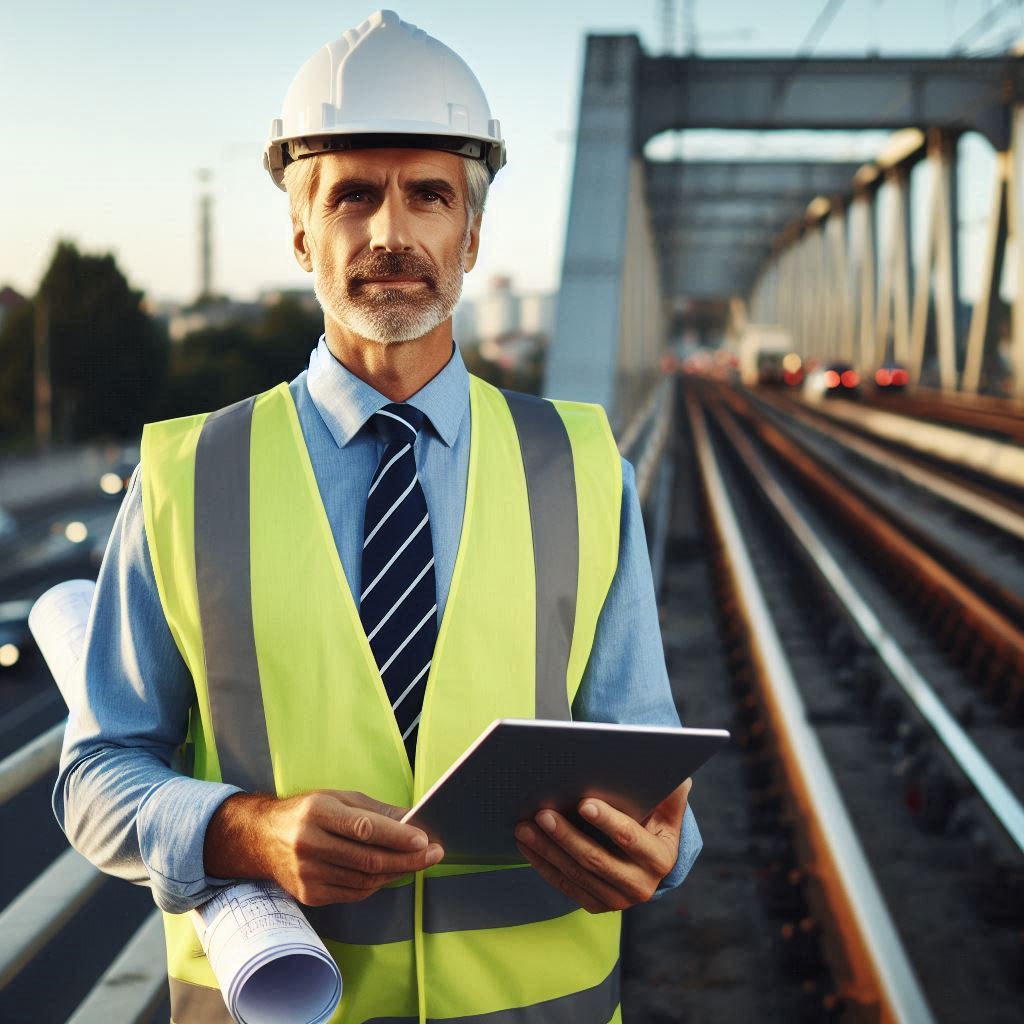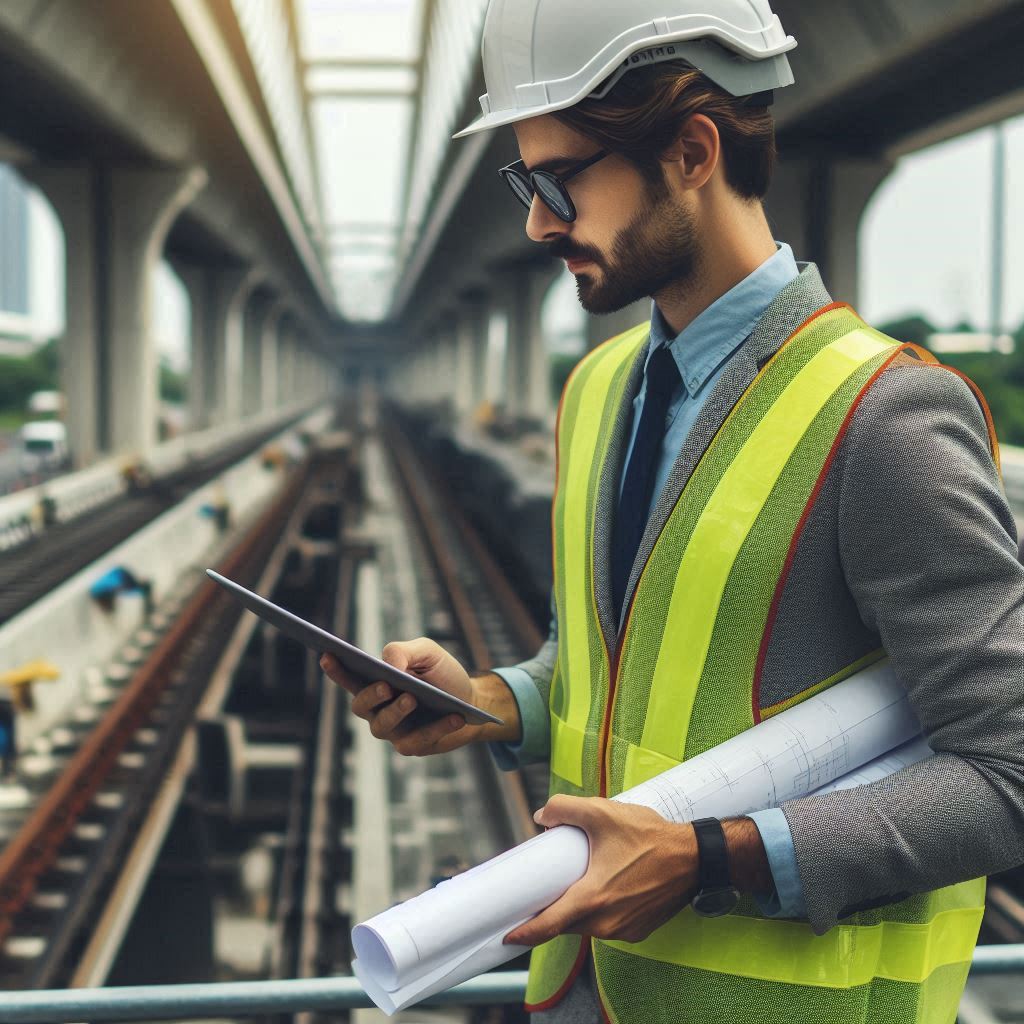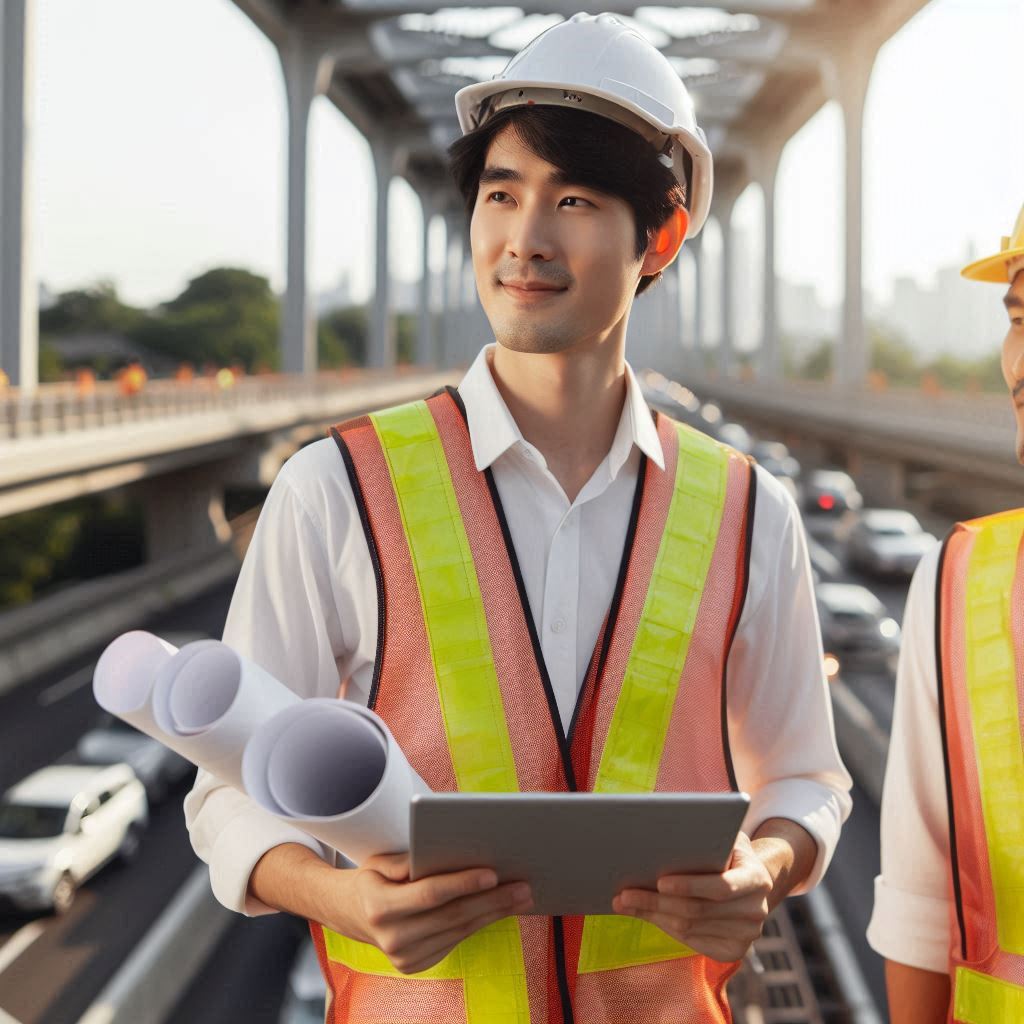Introduction
Transportation engineering is a vital field that impacts our daily lives in many ways.
These engineers design, build, and maintain transportation systems.
They ensure that roads, bridges, and public transit operate efficiently and safely.
Their work affects how people and goods move, impacting everything from local commutes to global trade.
Transportation engineers use their expertise to create infrastructure that meets the needs of growing populations.
They analyze traffic patterns, design road layouts, and plan public transit systems.
Their goal is to improve mobility while minimizing congestion and reducing environmental impact.
The importance of transportation engineering in society cannot be overstated.
Efficient transportation systems facilitate economic growth by connecting businesses with customers and suppliers.
They also enhance quality of life by providing safe and reliable travel options.
Well-designed transportation networks reduce travel time, lower accident rates, and decrease fuel consumption.
In essesence, transportation engineers play a crucial role in shaping the world we live in.
Their work ensures that our transportation systems function smoothly and sustainably.
By focusing on safety, efficiency, and innovation, transportation engineers help create communities where people can move freely and safely.
Their contributions are essential for both economic development and everyday convenience, making transportation engineering a cornerstone of modern society.
Educational Background Required to Become a Transportation Engineer
Skills and Qualities Needed for the Job
To excel as a transportation engineer, a blend of technical skills and personal qualities is essential.
Engineers need a solid understanding of engineering principles and computer-aided design (CAD) software.
Analytical skills help in evaluating data and making informed decisions.
Problem-solving abilities are crucial for addressing complex transportation challenges.
Attention to detail ensures that designs meet safety and regulatory standards.
Effective communication skills are vital for collaborating with teams and engaging with the public.
Adaptability helps engineers stay current with evolving technologies and industry trends.
A passion for sustainability drives engineers to seek innovative solutions that minimize environmental impact.
Licensing and Certification Requirements for Transportation Engineers
Becoming a licensed transportation engineer involves meeting specific education and experience requirements.
Most engineers need a bachelor’s degree in civil engineering or a related field.
After gaining relevant work experience, they must pass the Professional Engineer (PE) exam.
This certification validates their expertise and ensures they adhere to industry standards.
In addition to the PE license, engineers may pursue certifications from professional organizations.
These certifications, such as those from the Institute of Transportation Engineers (ITE), demonstrate specialized knowledge and commitment to the field.
Continuing education is often required to maintain licensure and stay updated on best practices and new technologies.
Moreover, researching new technologies and implementing sustainable practices are vital aspects of a transportation engineer’s role.
By staying updated on trends and actively seeking innovative solutions, engineers contribute to creating a more efficient and environmentally friendly transportation system.
Their skills, certifications, and continuous learning ensure they are well-equipped to tackle the challenges of modern transportation engineering.
Read: Networking Tips for Biomedical Engineers
Daily tasks of a transportation engineer
Planning and Designing Transportation Systems
Planning and designing transportation systems involves integrating new technologies and sustainable practices.
Engineers begin by assessing current infrastructure and identifying areas for improvement.
They design systems that incorporate modern solutions, such as electric vehicle charging networks and intelligent traffic management systems.
These designs aim to accommodate future growth and technological advancements while minimizing environmental impact.
Engineers employ sophisticated modeling tools to simulate and plan transportation systems.
These tools help predict how new technologies will interact with existing infrastructure.
By doing so, engineers can identify potential issues and refine their designs before implementation.
Their goal is to create systems that are both innovative and practical, meeting the needs of today’s users while preparing for future demands.
Analyzing Traffic Patterns and Congestion
Analyzing traffic patterns and congestion is crucial for effective transportation engineering.
Engineers use advanced data collection methods, including sensors and cameras, to monitor traffic flow.
They analyze this data to identify congestion hotspots and patterns that affect overall efficiency.
Understanding these patterns helps in designing solutions to alleviate traffic problems.
Engineers incorporate real-time traffic data into their designs.
They use this information to develop adaptive traffic management systems that adjust signal timings based on current traffic conditions.
These systems help reduce congestion and improve traffic flow, leading to less idling and lower emissions.
Engineers also evaluate how new technologies, such as vehicle-to-infrastructure communication, can enhance traffic management.
Read: Biomedical Engineer: Working in Healthcare Tech
Working With Government Agencies And Private Companies
Collaborating with Other Engineers and Urban Planners
Collaboration is essential for the successful implementation of new technologies and sustainable practices.
Engineers work closely with other professionals, including urban planners and environmental scientists.
Urban planners help integrate new transportation systems with existing city layouts and future growth plans.
This ensures that new technologies are seamlessly incorporated into urban environments.
Engineers also consult with environmental scientists to assess the potential impacts of new technologies on ecosystems.
This interdisciplinary approach helps address potential environmental concerns and ensures that solutions are both effective and eco-friendly.
By working together, these professionals can design transportation systems that balance technological innovation with environmental stewardship.
Ensuring Safety and Efficiency in Transportation Systems
Ensuring safety and efficiency is a top priority for transportation engineers.
New technologies must undergo rigorous testing to verify their safety and reliability.
Engineers conduct field tests and simulations to assess how well innovations perform under various conditions.
This process helps identify any potential issues before widespread deployment.
Efficiency is another critical aspect.
Engineers use data analysis to optimize the performance of transportation systems.
They monitor traffic patterns, vehicle emissions, and infrastructure durability to make data-driven decisions.
Efficient systems reduce travel times, lower fuel consumption, and minimize environmental impact.
Read: Biomedical Engineering: Industry Outlook 2024

Conducting Environmental Impact Assessments
Researching New Technologies and Trends in Transportation
Transportation engineers are at the forefront of integrating cutting-edge technologies into infrastructure.
They immerse themselves in researching advancements like electric vehicles (EVs), autonomous vehicles, and smart traffic systems.
Each of these innovations promises to transform how we travel, making transportation safer, more efficient, and environmentally friendly.
Engineers stay informed by attending industry conferences, participating in workshops, and engaging with technology vendors.
These interactions provide valuable insights into the latest trends and practical applications of emerging technologies.
For instance, the rise of autonomous vehicles offers the potential to reduce traffic accidents caused by human error.
Engineers assess how these vehicles interact with existing roadways and what modifications might be necessary to accommodate them safely.
Another exciting trend is the development of smart traffic management systems.
These systems leverage data analytics and artificial intelligence to manage traffic flow in real-time.
By analyzing traffic patterns, engineers can reduce congestion and improve travel efficiency.
The integration of such systems also helps in lowering vehicle emissions, contributing to a cleaner environment.
In addition to these technological advancements, engineers explore innovative materials and construction techniques.
Advances in materials science could lead to longer-lasting and more sustainable road surfaces.
Engineers experiment with materials that reduce heat absorption and reflect sunlight, which can help lower urban temperatures and decrease the heat island effect.
Implementing Sustainable Practices in Transportation Engineering
Sustainability is a core principle in modern transportation engineering.
Engineers are committed to minimizing the environmental impact of transportation systems.
Implementing sustainable practices involves integrating renewable energy sources, optimizing resource use, and improving the longevity of infrastructure.
One key practice is incorporating renewable energy into transportation projects.
Solar panels and wind turbines can power traffic signals, streetlights, and even electric vehicle charging stations.
Engineers evaluate the feasibility of these renewable energy sources for various projects to ensure they are both practical and cost-effective.
Another important aspect is the use of sustainable materials.
Engineers prioritize materials that are recycled, recyclable, or have a lower environmental impact.
For example, using recycled asphalt in road construction reduces the need for new raw materials and minimizes waste.
This approach not only conserves resources but also lowers the carbon footprint of road construction projects.
Lifecycle analysis is a critical component of sustainability.
Engineers assess the environmental impact of materials and construction methods throughout the entire lifecycle of a project.
This includes the manufacturing, maintenance, and eventual decommissioning of infrastructure.
By considering these factors, engineers aim to create projects that are both durable and environmentally friendly.
Read: How Agricultural Engineers Improve Crop Yields
Project management responsibilities of a transportation engineer
As a transportation engineer, project management is one of the key responsibilities that we handle on a daily basis.
This involves overseeing the planning, design, and construction of transportation projects to ensure they are completed successfully.
When it comes to project management, a transportation engineer is in charge of coordinating various aspects such as scheduling, resource allocation, and communication with stakeholders.
It is crucial to ensure that the project stays on track and meets all requirements and deadlines.
Budgeting and Cost Estimation for Transportation Projects
Another important task for a transportation engineer is budgeting and cost estimation for transportation projects.
This involves calculating the costs associated with materials, labor, equipment, and other resources needed to complete a project.
In order to accurately estimate project costs, a transportation engineer must consider factors such as inflation, market conditions, and unforeseen expenses.
It is essential to create a realistic budget to ensure the project stays within financial constraints.
Monitoring and Evaluating Project Progress
Monitoring and evaluating project progress is a vital part of the daily tasks of a transportation engineer.
This involves tracking the daily activities, milestones, and deliverables of a project to gauge its progress and make necessary adjustments.
By regularly monitoring project progress, a transportation engineer can identify any issues or delays and take corrective actions to keep the project on schedule.
Evaluation helps in determining whether the project is meeting its goals and objectives effectively.
Therefore, project management, budgeting, and cost estimation, as well as monitoring and evaluating project progress, are crucial responsibilities of a transportation engineer.
By effectively managing these tasks, transportation engineers ensure the successful completion of transportation projects and contribute to the improvement of infrastructure and transportation systems.
Challenges faced by transportation engineers
Dealing with unexpected changes and obstacles in projects
One of the biggest challenges for transportation engineers is dealing with unexpected changes and obstacles that arise during projects.
These changes can range from budget constraints to unforeseen environmental issues.
Transportation engineers must be able to adapt quickly and come up with solutions on the fly to keep projects on track.
For example, if a construction crew encounters soil contamination while digging for a new road, the transportation engineer must work with environmental specialists to develop a mitigation plan.
This may involve changing the construction timeline, sourcing new materials, or securing additional funding to address the issue.
Balancing competing interests and priorities in transportation planning
Another significant challenge for transportation engineers is balancing competing interests and priorities in transportation planning.
Transportation projects often involve multiple stakeholders with differing goals and objectives.
For example, a new highway project may be critical for reducing traffic congestion in a metropolitan area, but it could also have negative impacts on local businesses and communities.
Transportation engineers must carefully consider the needs of all stakeholders and strive to find a balance that meets the overall goals of the project.
This may involve conducting extensive community outreach, negotiating with government agencies, and developing creative solutions to address conflicting priorities.
Overall, transportation engineering is a complex and demanding field that requires a unique blend of technical expertise, problem-solving skills, and interpersonal abilities.
Despite the challenges they face, transportation engineers play a critical role in shaping the future of our transportation systems and ensuring the safe and efficient movement of people and goods.
Conclusion
Transportation engineers play a crucial role in shaping our daily lives and the future of urban infrastructure.
Their tasks are varied and essential, from designing roadways to optimizing traffic flow.
Daily, they analyze traffic patterns, plan transportation systems, and ensure safety regulations are met.
They also collaborate with other engineers and stakeholders to address infrastructure needs and improve public transportation options.
Transportation engineers begin their day by reviewing project plans and conducting field inspections.
They use data to make informed decisions about traffic management and infrastructure improvements.
They often coordinate with local governments and contractors to ensure projects are on schedule and within budget.
Their work involves a lot of problem-solving, as they must adapt to unexpected challenges and changing conditions.
The impact of transportation engineering extends far beyond daily tasks.
These engineers influence how cities develop and grow, affecting everything from commute times to environmental sustainability.
Their designs help reduce congestion, lower accident rates, and enhance the overall quality of life for residents.
As cities continue to expand and evolve, transportation engineers are key to creating efficient, safe, and innovative infrastructure.
In general, transportation engineers are essential to the future of our cities.
Their expertise shapes how we travel and live, making our communities more connected and resilient.
By focusing on efficient design and planning, they help pave the way for smarter, more sustainable urban environments.
[E-Books for Sale]
The Big Book of 500 High-Paying Jobs in America: Unlock Your Earning Potential
$19.99 • 500 High-Paying Jobs • 330 pages
Explore 500 high-paying jobs in America and learn how to boost your career, earn more, and achieve success!
See All 500 High-Paying Jobs of this E-Book
1001 Professions Without a Degree: High-Paying American Jobs You Can Start Now
$19.99 • 1001 Professions Without a Degree • 174 pages
Discover 1001 high-paying jobs without a degree! Unlock career tips, skills, and success strategies for just $19.99!




